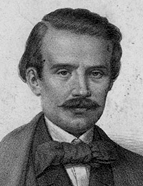

His most well-known work, which remains a crucial source for studying Portuguese pre-liberalism due to its informative value, is undoubtedly História Política e Militar de Portugal desde os Fins do Século XVIII até 1814, Volume I, 1874 [Political and Military History of Portugal from the Late 18th Century to 1814, Volume 1, 1874], with two additional volumes published later. Following a public tender, the author was officially commissioned by the Minister of War to complete this work. The aim was to "gather the sayings and examples of the collective defence effort" (Vol. I, p. XXI), which reveals a clear intention to highlight not only individual determination but also the collective efforts that helped shape what was then referred to as the national character. The first two volumes focus on the country's political and social landscape, considering both the domestic situation and international relations. The third volume delves into events related to the Peninsular War, offering a detailed account that intertwines political developments with military successes.
The information was largely sourced from the archives of the Ministries of Foreign Affairs, the Navy, the former Ministry of War, the Ministry of the Kingdom, the ANTT (mainly papers from the Police Intendency and the Inquisition), the Royal Academy of Sciences, and the National Library. In the introduction, the author presents a rationalist concept of history based on the "harsh laws of induction and experimental criticism," even regarding it as a natural science (Vol. I, p. XXVII). Thus, his call for impartiality "without false patriotism" is unsurprising. However, he insisted on highlighting Portugal's "legitimate glories," which had often been overlooked by British historians. In Latino Coelho's work, the concept of history as a science — prevalent in European historiography at the time, as seen with Fustel de Coulanges in France — coexists with the classical Ciceronian notion of history as the teacher of life. He embraces this idea in a forward-looking sense, stressing the importance of learning from the moral examples and mistakes of the past for the collective good. His work features a predominant narrative dimension, and his eclectic approach to history is noteworthy, blending the scientific concept of history with an abstract notion of Providence as a unifying principle. Equally notable is how Latino Coelho embraced the legacy of the 18th century in his own time. It is no coincidence that he dedicated a study to the Marquis of Pombal, whom he regarded as a precursor of liberalism and democracy — a new man rewarded by merit (O Marquês de Pombal, Part I, pp. 7, 126). These foundational ideas were especially celebrated by the republican movement.
